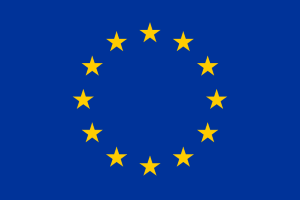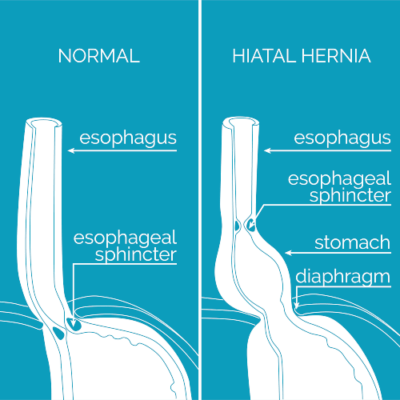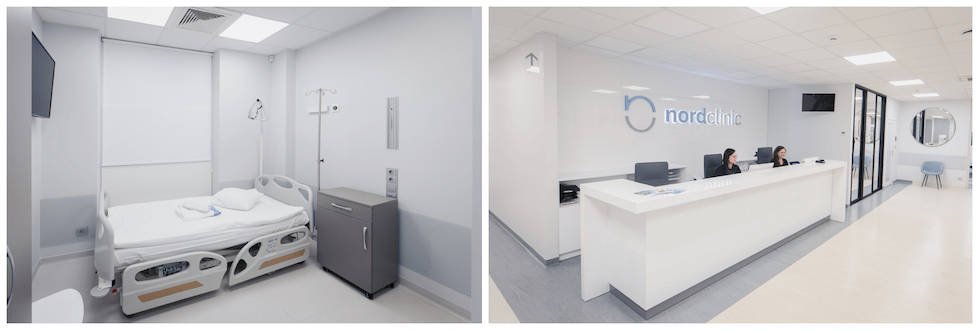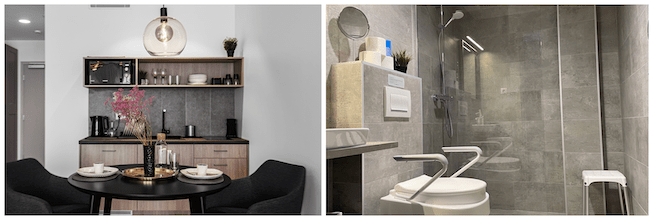Anti-reflux (GERD) surgery
Leading medical tourism clinic
We are the leading medical tourism clinic in the Baltic region with over 10 years of experience. We are proud of the fact that around 90% of our patients come from abroad: the UK, Ireland and Scandinavian countries – this is the area we specialise in and our processes have been adapted to cater specifically for patients from abroad. Our team of surgeons perform over 4.000 surgeries per year, mostly plastic, bariatric, orthopaedic, general and gynecological surgeries.
Reviews and Facebook group
Our patients and clinic in the media
Prices
- Hiatal hernia (Anti-reflux surgery) – from 2.850 £ | or 750 £ with S2 funding* | or FREE with bariatric surgery
- Umbilical hernia – from 1.350 £ | or from 750 £* | or FREE with bariatric surgery
- Inguinal hernia – from 1.420 £ (from 580 £*)
- Abdominal wall hernia – from 1.420 £ (from 580 £*)
- Epigastric hernia – from 2.000 £ (from 1.170 £*)
*Your surgery can be partly funded via the S2 funding route (read more in the next tab)
Regular consultations with Prof. Almantas Maleckas in London
- accommodation with medical care – from 62 £ per night
The S2 route may entitle you to NHS funding for planned state healthcare treatment in Lithuania. You can save up to 80% for the hernia surgery. Contact our customer service for more information:
- Hiatal hernia (Anti-reflux surgery):
- from 2.850 £ without S2 funding
- from 750 £ with S2 funding
- Umbilical hernia:
- from 1.350 £ without S2 funding
- from 750 £ with S2 funding
- Inguinal hernia:
- from 1.420 £ without S2 funding
- from 580 £ with S2 funding
- Abdominal wall hernia:
- from 1.420 £ without S2 funding
- from 580 £ without S2 funding
- Epigastric hernia –
- from 2.000 £ without S2 funding
- from 1.170 £ with S2 funding
Get your surgery for free by claiming a refund from your local health board. We cooperate with HSE and other health boards across the EU to help our Irish and EU patients receive a refund for their weight loss surgery in Lithuania. The clinic helps with the documents needed to claim a refund after following the EU directive route for medical treatment abroad.
Regular price:
- consultation with the surgeon and anaesthesiologist
- all the necessary health tests before and after the surgery
- surgery
- anaesthesia
- hospital stay (1-3 days) with 24 hours medical care
- 24/7 personal assistance during your stay
- transfers to / from the airport, hotel and clinic
Please note that the price of the surgery itself is provisional and may be accurately assessed only after the evaluation of each individual case.
The default currency at our clinic is EUR, so if you were looking at prices in GBP it may vary depending on GBP / EUR exchange rate at the moment of payment.
- Hiatal hernia (Anti-reflux surgery) – from 3.400 € | or 900 € with S2 funding* | or FREE with bariatric surgery
- Umbilical hernia – from 1.600 € | or from 900 €* | or FREE with bariatric surgery
- Inguinal hernia – from 1.700 € (from 700 €*)
- Abdominal wall hernia – from 1.700 € (from 700 €*)
- Epigastric hernia – from 2.400 € (from 1.400 €*)
- accommodation with medical care – from 62 £ per night
The S2 route may entitle you to NHS funding for planned state healthcare treatment in Lithuania. You can save up to 80% for the hernia surgery. Contact our customer service for more information:
- Hiatal hernia (Anti-reflux surgery):
- from 3.400 € without S2 funding
- from 900 € with S2 funding
- Umbilical hernia:
- from 1.600 € without S2 funding
- from 900 € with S2 funding
- Inguinal hernia:
- from 1.700 € without S2 funding
- from 700 € with S2 funding
- Abdominal wall hernia:
- from 1.700 € without S2 funding
- from 700 € without S2 funding
- Epigastric hernia:
- from 2.400 € without S2 funding
- from 1.400 € with S2 funding
Get your surgery for free by claiming a refund from your local health board. We cooperate with HSE and other health boards across the EU to help our Irish and EU patients receive a refund for their weight loss surgery in Lithuania. The clinic helps with the documents needed to claim a refund after following the EU directive route for medical treatment abroad.
Regular price:
- consultation with the surgeon and anaesthesiologist
- all the necessary health tests before and after the surgery
- surgery
- anaesthesia
- hospital stay (1-3 days) with 24 hours medical care
- 24/7 personal assistance during your stay
- transfers to / from the airport, hotel and clinic
Please note that the price of the surgery itself is provisional and may be accurately assessed only after the evaluation of each individual case.
The default currency at our clinic is EUR, so if you were looking at prices in GBP it may vary depending on GBP / EUR exchange rate at the moment of payment.
Patient stories
Refund for EU patients

Get your surgery for free by claiming a refund from your local health board. The clinic helps patients with the documents needed to claim a refund after following the EU directive route for medical treatment abroad. It applies to patients who are insured under the systems of one of the EU countries and may not get the surgery due to long waiting times. On average our patients from the EU countries get fully refunded by their local health board in 3-5 months after their surgeries.
Our surgeon
- Our surgeon Linas Venclauskas with over 15 years’ of experience
- Specialises in minimally invasive surgery, surgical treatment of the upper gastrointestinal tract and bariatric surgery
- Associate Professor at Lithuanian University of Health Sciences
- President of the Kaunas Society of Surgeons
- A member of the European Hernia Society
- Chairman of the Lithuanian Society of Hernia Surgery
11 reasons that make us the most popular bariatric clinic abroad
Our team of 3 bariatric surgeons has 15-20 years of experience in the field in total performing over 500 different bariatric surgeries per year. Moreover, our surgeons are members of various prestigious surgical societies both Lithuanian and international. Our leading bariatric surgeon Dr Almantas Maleckas has performed more than 7.000 bariatric surgeries. He is fluent in four languages, among which English and Swedish. The surgeon has been regularly working in Sweden for over 15 years. Dr Maleckas is a pioneer of laparoscopic surgery in Eastern Europe and has trained many other bariatric surgeons in the region.
We are one of the leading bariatric surgery clinics for medical tourists in the European Union. We are proud of the fact that over 90 % of our patients come from the UK, Ireland, Norway, Sweden, Denmark, Germany, Switzerland and other countries.
We are trusted by our patients and we appreciate all the reviews and feedback collected over the years. Find testimonials here or on Google.
Already more than 5.000 of our former, current and future patients joined our online community with the aim to build a space for opinions and mutual support. Members are welcome to share experiences about their visit to the clinic and to discuss all surgery-related matters.
We offer a 5-year follow-up which includes being able to get in touch with our Lithuanian dietitian Karolina. She is consulting patients after surgery and is available upon request to answer postoperative nutritional questions for five years after surgery.
Our clinic is the only clinic that has developed its own app designed specifically for bariatric patients – Bariatric IQ. The most useful feature of this app is special bariatric diet recommendations based on a particular product, a patient’s gender, time after surgery and other factors. Such a feature has not been replicated by any other bariatric apps in the world. Read more and download the app on your IOS or Android smartphone here.
Our clinic works according to the highest standards set by the European Union. This helps to guarantee the quality of medical services. We care about the safety, comfort and successful results of our patients from all over the world.
The clinic helps patients with the documents needed to claim a refund after following the EU directive route for medical treatment abroad. It applies to patients who are insured under the systems of one of the EU countries and may not get the surgery due to long waiting times.
We provide customer service in 9 foreign languages including English, Swedish, Norwegian, Danish, Italian, Spanish, French, Russian, Polish. Everyone in our clinic speaks English, including nurses, assistants and the surgeon.
Combining different plastic surgery procedures to offer optimal treatment for post-bariatric patients has been our plastic surgery department’s specialisation for many years now. We have performed such surgeries for more than 10.000 patients to this date. Since weight loss patients often require multiple surgical procedures to address excess skin, surgery planning and surgeons’ experience are very important. We carefully select patients, evaluate each case individually, and only agree to combine surgeries within health & safety limits. Our team of 9 plastic surgeons performs more than 3.000 plastic operations a year, a number that no other clinic in Central & Eastern Europe can match.
Direct flights to Lithuania







What is Gastroesophageal Reflux Disease (GERD)?

Gastroesophageal reflux disease (GERD) is a common digestive disorder that affects about 40% of the adult population. It is often described as “acid reflux” or “ heartburn”. Typical reflux symptoms include acid regurgitation, pain in the chest, difficulty swallowing, constant feeling of fullness, and bloating. Other gastric reflux signs are chronic cough, wheezing, and sore throat. There are certain risk factors, like obesity, alcohol use, and tobacco use, that increase the risk of GERD.
Gastric reflux disease can be improved with lifestyle changes, such as avoiding late-night meals, promoting weight loss, ceasing chronic use of tobacco and alcohol, as well as limiting consumption of reflux-causing foods (e.g. fast-food, sweets). However, if non-surgical treatment is unsuccessful, patients are recommended surgical treatment.
What causes GERD?
The main cause of gastroesophageal reflux disease is abnormal gastroesophageal sphincter function. A gastroesophageal sphincter is located between the esophagus and the stomach. It should be tightly squeezed between meals and loosen only to allow food into the stomach. In gastroesophageal reflux disease, the sphincter fails to close completely, so the stomach content can flow back up into the esophagus at any time. Returning gastric juices burn the sensitive lining of the esophagus, causing unpleasant symptoms, like heartburn, sore throat, and an acidic taste in the mouth. Some people have hereditary weak sphincters, and for others, gastric reflux disease flares up after eating spicy or fatty foods, smoking, and drinking alcohol.
When is surgery necessary?
- Surgery is necessary to treat severe cases of chronic gastroesophageal reflux. Patients are referred for surgical consultation when severe reflux persists despite taking acidity-reducing medications and changing lifestyle habits (e.g. sleeping on an inclined pillow, cutting down on processed foods).
- Over-the-counter drugs only regulate the acidity of the gastric juices so it may be necessary to surgically correct sphincter dysfunction.
- If untreated, GERD can lead to narrowing of the esophagus, formation of esophageal sores, and precancerous changes (so-called Barrett's esophagus).
Surgical treatment options
Surgical fundoplication is performed by taking an upper part of the stomach and wrapping it 360 degrees around the lower esophagus. The mechanism of relief is based on stomach muscle contraction that closes the esophagus and prevents gastric reflux with minimal side effects.
Who is a good laparoscopic anti-reflux surgery candidate?
Best candidates for fundoplication are those with Barrett’s esophagus, esophagitis, or hiatal hernia (part of a stomach bulging into the chest). Some people, for example, those with morbid obesity (Body Mass Index >40) may not be eligible for anti-reflux surgery.
How is the surgery performed?
Surgical fundoplication is a minimally invasive surgery. It is performed laparoscopically under general anaesthesia and takes 60 to 90 minutes to complete. A surgeon uses a narrow tube-like camera as well as other operating instruments and inserts them into the abdomen through a few tiny incisions. The laparoscopic approach ensures shorter operating time, faster recovery, less scarring, and a lower post-operative wound infection risk. After gaining access to the operative site, the surgeon uses laparoscopic instruments to carefully wrap the uppermost part of the stomach and attach it around the esophagus.
What to expect after anti-reflux surgery?
After laparoscopic anti-reflux surgery, patients spend 1-2 days in the hospital for close monitoring. Some patients may feel sore and have moderate pain in the abdomen. Any discomfort is controlled with painkillers so that the patients can rest properly. Some patients can find it difficult to swallow, have mild stomach cramps and feel bloated for up to 6 weeks post-surgery. Post-operative symptoms usually disappear within 2 to 3 months.
When at home, patients are recommended to take enough time to rest and sleep. Walking short distances each day boosts blood flow and prevents blood clot formation as well as constipation. For about 2 weeks patients should avoid lifting heavy objects (7 to 9 kilograms). It is also necessary to avoid squatting and other movements that activate abdominal muscles. After laparoscopic surgery, most patients can return to work within 2 to 3 weeks.
For the first week, patients stay on a liquid or soft food diet that includes broths, soups, or mashed vegetables. The diet slowly progresses to easy to swallow foods, like meals consisting of ground meat, shredded chicken, or pasta. Patients are recommended to eat 5 or 6 small meals a day and chew each bite well. It is necessary to avoid carbonated drinks and fast food. Within 4 to 6 weeks, patients can return to eating normal everyday foods without limitations.
Expected outcomes/complications
About 95% of people have excellent surgical outcomes and more than 50% continue to live without medications for acid reflux. Studies have shown that symptom improvement continues long-term. Even though the success rate is high, reflux symptoms can recur in 10 to 30% of patients. Some patients, however, may need a repeat procedure in 8 to 10 years. Other postoperative complications include bloating, difficulty swallowing, and diarrhea.
Our clinic

Self-catered accommodation with medical care
Send us your enquiry







